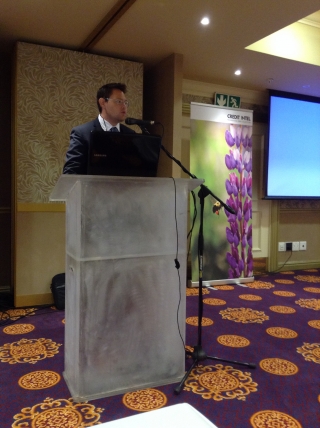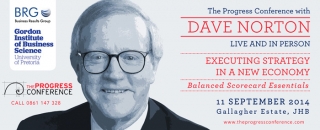World Debt and Investment: risk and reality
“Everything we get, outside of the free gifts of nature, must in some way be paid for.” ~ Henry Hazelitt ‘One Lesson: The Shortest and Surest Way to Understand Basic Economics’
Debt is a complex issue – and depending on how it is controlled – can have either positive or negative effects. In its simplest form, debt could well look like this: if you owe more money than you earn, you are bankrupt, actually poor. Yet the world seems determined to ignore this reality and continues to spend beyond means and borrow beyond ability to repay. The effect is the same whether you’re an individual, a company, or a country.
The tatters of wealth
There is a lot of talk about ‘rich’ countries – but in reality, are they? When a country has borrowed beyond its means to pay back the loan, and is carrying an impossible repayment load of billions and trillions, would you call that country ‘rich’ merely because it displays a comfortable or even extravagant lifestyle? Before you judge any entity’s wealth status, you should look at what is owed against income – that way you might look at many ‘rich’ countries in a different light; the US, UK, France, Spain, Italy and several others might just surprise you.
Between the years 2000 and 2009, total global credit grew from $57 trillion to $109 trillion. The scary thing is that this reflects debt burgeoning at around double the growth in economic activity – in other words the debt is growing faster than money is being made to pay it off. The alarm bells are ringing. Why does this happen?
Like all debt traps, one is sucked in, thinking that eventually there will be enough money to pay off what is owed – but in the meantime one will have the comfort of material possessions and services one wants. Governments invest in debt because they believe that, while giving society the benefits they demand, the economic growth derived from the investment of this borrowing will provide grist to economic activity, which in turn will produce more than enough to pay back the loan.
A leap of faith
So debt can be useful. It helps to accelerate spending – thus generating economic activity, creating jobs, and meeting the public’s demands through the provision of cheap or free public services. Indeed, debt handled well can stimulate enough busyness to produce good returns and therefore not only the ability to pay back the loan, but also enough to pay the interest on that loan.
But here’s the rub: the build-up of debt over the last 25 years has been excessive, ballooning to numbers that countries can find no way of paying back. Indeed, sometimes they borrow more money to pay back loans that have reached payback date and which carry further substantial financial costs if not met. These governments scrabble to maintain their welfare systems and standards of living while finding themselves at the mercy of big lenders, rising interest rates, and financial penalties which obviously they cannot afford. Greece is a prime example of this.
So what can be done?
- Reducing debt through debt forgiveness, defaults or inflation has serious knock-on effects. Savings designed to finance future needs, such as retirement, are lost. This means more people will be turning to the state to assist them, which results in greater state expenditure, which in turn takes money away from support for economic growth.
- Raising taxes is the next option – although this never goes down well with an electorate who perceive their hard-earned tax money as being misused and abused by irresponsible politicians.
- Those countries with high or rising sovereign debt may find themselves benefiting initially due to broadly accommodative monetary policies – however, this comfortable situation cannot be sustained when in reality what has been achieved is only an illusion of stability. It also tends to slow the implementation of the very necessary and difficult reforms, often in the form of austerity measures, that are vital to attaining fiscal balance and promoting future growth.
- Investing in an environment of increasing debt can become high risk for everybody. When debt is simply increased to maintain consumption – whether as an individual, a company, or government – it creates an entirely unsustainable scenario.
Debt and investment – dangerous liaison or delicate harmony?
“In the solution to one economic crisis, lies the seeds of the next.” ~ Stuart Young, Executive Consultant, Director of Companies.
The seeds of the current situation predate the 2008 credit crunch which put the US economy under the greatest stress since the Depression of the 1930s. And the solution was ‘quantitative easing’ – simply printing more money that had no solid backing, effectively without real value. Simply printing more money might give the impression of a flush society, but in reality is merely a façade.
Debt offers the same illusion, allowing people to spend more of what they don’t actually have. Households and businesses borrow in order to finance consumption – and see this as an investment, believing that spending more today will increase their welfare in the future.
This ploy can work: if for instance, the money borrowed is used to train staff to greater productivity, thus increasing a company’s capacity and therefore opportunity for profits, the debt can propel a company forward. Borrowed money used well – with regular repayments to avoid censure – can help individuals to improve their lives, a company to develop positively, and a government to meet taxpayers’ expectations.
Debt can act as a fundamental anchor to economies, value lying more in amounts owed than ownership. Asset value lies in what is owed and the interest due on those loans. The right kind of debt should fuel growth, stability and confidence, bolstered by the belief that investments funded by debt should ultimately deliver financial returns greater than the debt.
Problems arise when one debt load is still outstanding, and an entity is forced to borrow again to maintain a lifestyle already built on credit. This begins a spiral that is soon out of control. Global debt is currently struggling to pay off the interest on their loans, let alone make any substantial inroad on reducing the debt itself. In this way, past and present sins may haunt us well into the future.
Foster Wealth – the safest path on a rocky journey
At Foster Wealth we’re aware of the tricky balance between global debt, stock markets and investment strategies. Market tensions are not within our control, but certainly an astute eye is vital to keeping one step ahead. Our track record is not only built on experience, but unrelenting focus, expertise and passion for our industry – complemented by highly professional, personal involvement in every client’s valued portfolio.
Find out more about us at: www.fosterwealth.co.za
South African industry leaders to address the Debt Collection Conference 2017
Johannesburg - High level representatives of companies such as ADRA, PASA, Debt Rescue, Callforce, MFSA, Consumer Profile Bureau, Cornerstone Performance Solutions, Flemix & Associates, OVAG SA, Burnard Raaff & Associates and Tenacity Financial Services and more to be attendance at the third annual Debt Collection Conference 2017.
The event, to be held on 6 & 7 September 2017 at Indaba Hotel, Fourways, Johannesburg, and hosted by Trade Conferences International (TCI), aims to attract professional dealing with debt collection, debt management, credit risk, debt & credit control, legal debt counselling & advisory, credit management as well as collection management and implementation.
Themes to be addresses includes current SA debt collection landscape,developing and managing strategies,focusing on customer engagement, credit risk management, governance, compliance and legal framework, new technology for efficient debt collection as well as the state, evolution and future of credit & debt collection industry.
Michandre Malan – Senior Project Manager at Trade Conferences International - said TCI has organised more than 400 events in the last fourteen years. Since we hosted the first Debt Collection in 2013, the event attracted over a 600 registered delegates and over 100 exhibiting companies includes: ABSA, African Bank, CrediCor, DirectAxis, Discovery, HTN Attorneys, PayM8, NRB Risk Solutions, Nedbank, FNB, Standard Bank, Uni-Collect, Woolworths Financial Services and more.This years’ conference is expected to attract over a 150 delegates.
“TCI is your technology event organiser of choice and we believe that the event will be a success. We understand technology and have the ability to identify the right audience to showcase the latest technology developments in different industries. The event will allow both exhibitors and delegates an opportunity to network and explore new developments in the debt collection and credit risk industry.”
Normal Registration fee: R8 600,00 + VAT = R9 804.00 p.p.
12% Discount: Group registration fee for 3 or more delegates: R7 568.00 + VAT = R8 627.52 p.p.
20% Discount Group registration fee for 5 or more delegates: R 6 880.00 + VAT = R7 843.20 p.p.
How to get invovled with this TCi signuture event:
To register as a delegate email Michandre Malan on This email address is being protected from spambots. You need JavaScript enabled to view it.. Exhibition enquiries are handled by Jason Joseph This email address is being protected from spambots. You need JavaScript enabled to view it., or call both on 011 803 1553.
New law sees many debt collectors either close down or face significant financial difficulty
Held on 18 February at Emperor’s Palace, Johannesburg, the Conference was attended by members of First National Bank, Nedbank, PASA, attorneys’ firms, the Consumer Profile Bureau and many others. Also in attendance were the Banking Ombudsman, Clive Pillay and Credit Intel Key Accounts Manager, Bennett Baloyi.
With each passing day, the debt collection industry awaits the promulgation of the notorious National Credit Amendment Bill; most notable for a proposed ban on the collection and sale of prescribed debt, which will see many debt collectors either close down completely or take significant financial knocks. Michael Shackleton spoke on the Bill and suggested that the proper implementation of the already existent National Credit Act would strike a fair balance between promoting the business of legal credit lenders and protecting debtors from unscrupulous lenders.
Shackleton also indicated that the NCAB will create greater regulation under which credit providers will have to operate, at a time when reduced regulation and the cutting of bureaucratic red tape is necessary to reduce unemployment and to cause small companies to thrive. Small companies are the engine of job creation in Gauteng.
Marina Short, CEO of the Consumer Profile Bureau, delivered an outstanding speech on regulatory data and the credit market. She is somewhat of an authority regarding credit and she genuinely provided valuable insights to all the attendees.
FutureSoft CEO, Peter Rafferty, spoke on the prescription of debt whilst advocate Hannelie Gray talked on emolument attachment orders.
Thav Reddy, Head of Compliance at Nedbank’s MFC division, educated attendees on how to manage the implementation of the Protection of Personal Information Act.
Marie Smit, Compliance Manager at PASA, suggested measures on how to increase the security of payments, something which is surely on the mind of all, considering the technological developments of the present day and the so-called “scam artists” living by fraudulent means within the Republic of South Africa.
Leon Townsend delivered an incredible and interactive speech concerning strategies to limit fraud. He is Executive Director at Censeo and a Certified Fraud Examiner. His organisation assists credit providers to assess which debtors to provide loans to by determining which prospective debtors are the most prone to commit fraud.
The conference was chaired by Credit Intel Senior Legal Executive Michael Shackleton, who is well known as a leading attorney in debt collection.
It was a highly educational and thought provoking Conference which Credit Intel was glad to be part of. Credit Intel prides itself on professional service and seeks to become the authoritative voice on debt collection in South Africa. Being invited to present and give inputs at Conferences such as these indicates that many people are turning to Credit Intel as an authority on debt collection.
Credit & Debt Law Conference 2015
Are you dealing with collections, recoveries, rehabilitation, information and data, affordability and cost of credit, EAO's / garnishee orders, legislation, regulations, payment systems, fraud and security? Then attending the 2nd Annual Credit & Debt Conference is for you. Informative topics will be addressed by industry experts. Full agenda available at www.aoevents.co.za
Regulatory data and credit market - tracking credit & debt data, data sources, regulatory changes, completeness of data. (Marina Short, Chief Executive Officer, Consumer Profile Bureau)
National Credit Amendment Act: What’s in store for lenders and borrowers? - what does it mean for lenders and borrowers, advantages and disadvantages, impacts on reckless lending, impact on credit and lending advertising, benefits and setbacks in future. (Michael Shackleton, Senior Legal Executive, Credit Intel)
Perscription of debt. (Peter Rafferty, Chief Executive Officer, FutureSoft)
Issues around the use of EAO’s - EAO what's all the fuss about, latest developments/proposed amendments, what to look out for when enforcing/complying with an EAO, what can you do to assist? (Hannelie Gray, Advocate of the Johannesburg Bar, Bridge Group of Advocates)
POPIA: How to integrate implementation into other legislative requirements - POPI baseline requirements, practical implementation guidelines, information security requirements integration with other legislation, international trends (Thav Reddy, Head: Compliance, MFC a division of Nedbank)
Regulatory measures to enhance the safety and security of our payments - ensuring a sound legal & governance framework for the National Payment System, overview of some general measures to manage risk in the payment system – the 90/10 rule, item limits, KYC, Sanctions lists, specific measures – in cards, EFT, RTC and cheques. (Marie Smit, Compliance Manager, Payments Association of South Africa – PASA)
Who needs an anti-fraud strategy? - What is fraud, ACFE 2014 global fraud study, cost of occupational fraud, how is it committed, detection, victim organisations, perpetrators, why do you need an anti-fraud specialist. (Leon Towsen, Executive Director, Censeo)
Why attend? This is the perfect opportunity to learn from industry experts as they share their knowledge and expertise. You will be able to discuss current issue with speakers and attendees, take a look into the future of the industry and network with attendees and speakers and create new business leads.
Some of the comments we received after the 2014 conference includes “Conference was well organised and the venue was great” (Gerhard – Jansen & Jansen Attorneys), “Great conference, it was very informative” (Marc – Gugu’s Financial Services) “The conference was very informative and information shared was very usefull” (Greg – Nedbank) “Very well informed speakers presenting at the conference” (Lindokuhle – Rural Housing Loan Fund), “Conference was great and has widened my knowledge of the impact of prescription, NCA and EOA’s” (Merusha – Absa)
Delegate registration fee: R1799.00 - Group booking of 3 or more qualify for a 15% discount.
Register now by downloading the registration form at www.aoevents.co.za.
Send the completed form to This email address is being protected from spambots. You need JavaScript enabled to view it.
Live and in person Dr Dave Norton, Internationally acclaimed co-architect of the Balanced Scorecard - HBR rated BSC as one of the most influential management ideas for the past 75 years
Business Results Group and GIBS presents The 10th Progress Conference on Balanced Scorecard Essentials, with Dr David Norton, Live and in Person. Dave Norton will present a one day programme in JHB on the 11th September 2014. In 2012, over 500 executives participated in his colleague, Professor Kaplan’s event in South Africa.
Dr Norton has most recently been honoured by Thinkers 50 in their Hall of Fame sharing this acclaim with Tom Peters, Warren Bennis, Howard Gardner, Charles Handy, Philip Kotler, Henry Mintzberg, Kenichi Omae, Ikujiro Nonaka and his colleague Professor Kaplan, for their mammoth contribution to business management and leadership. Harvard Business Review recognised the Balanced Scorecard as one of the most influential management ideas in the past 75 years.
The 2014 programme includes the latest findings and experience in Strategy measurement, leadership, human capital and cross functional priorities and solutions.
This is what his clients have to say,
“Our BSC helped us to deliver superior performance, consistently and predictably in all facets of our organisation.” Kris Gopalakrishnan, CEO, INFOSYS
“BSC is the strongest tool I have seen in 22 years of my career, to align people in the organisation to the corporate objectives.” Sunil Wahwa, CEO, New Delhi Power
“I am convinced that implementing the Balanced Scorecard has helped us to deliver record-breaking progress over the past 5 years.” Bill Padfield, CEO, Data Dimensions
To acquire access to Dr Dave Norton’s latest thinking, findings and solutions to execute strategy in a new economy, call Angela on 011 463 9898. For further information visit www.theprogressconference.com






